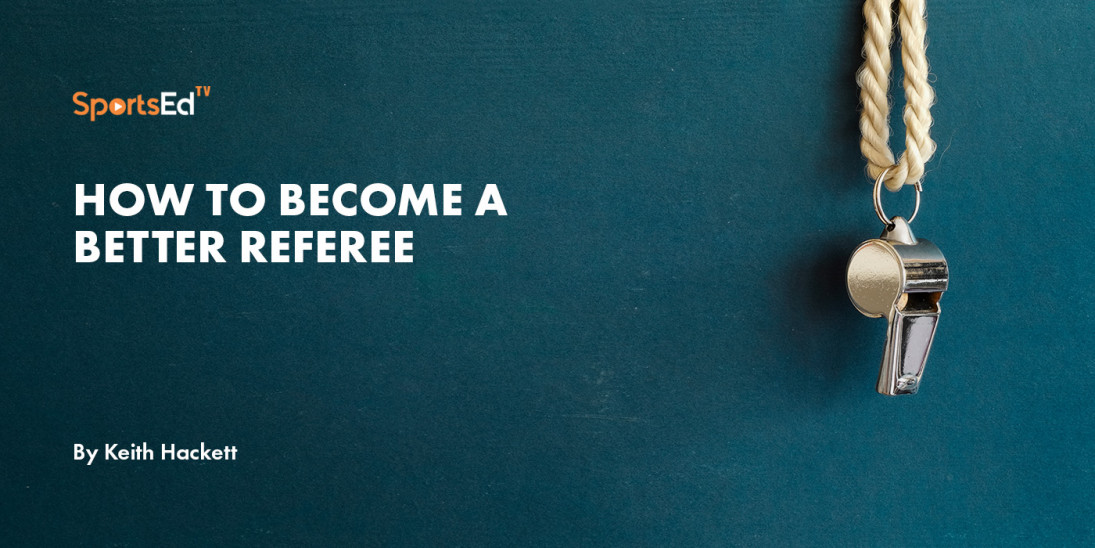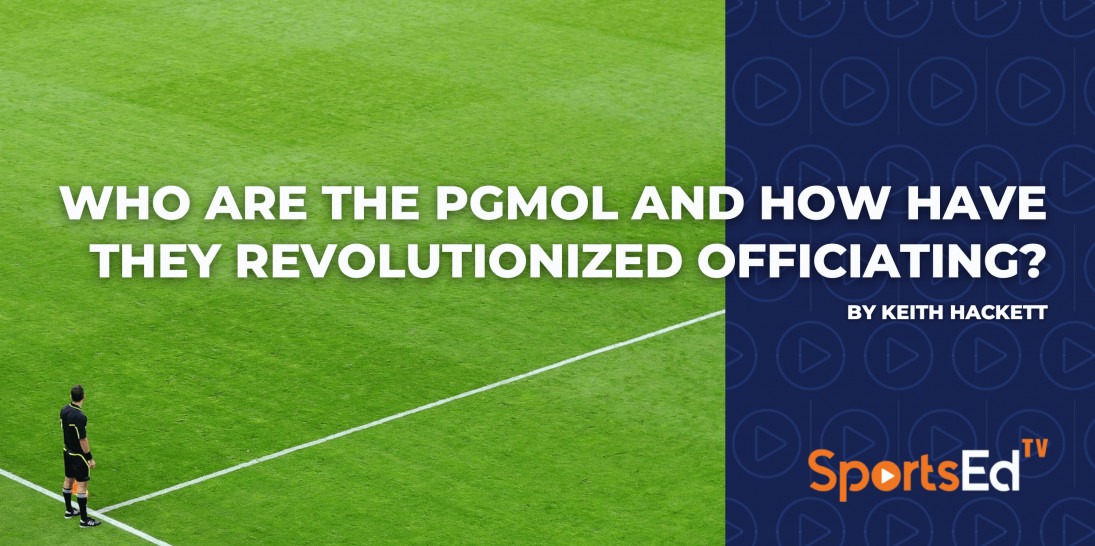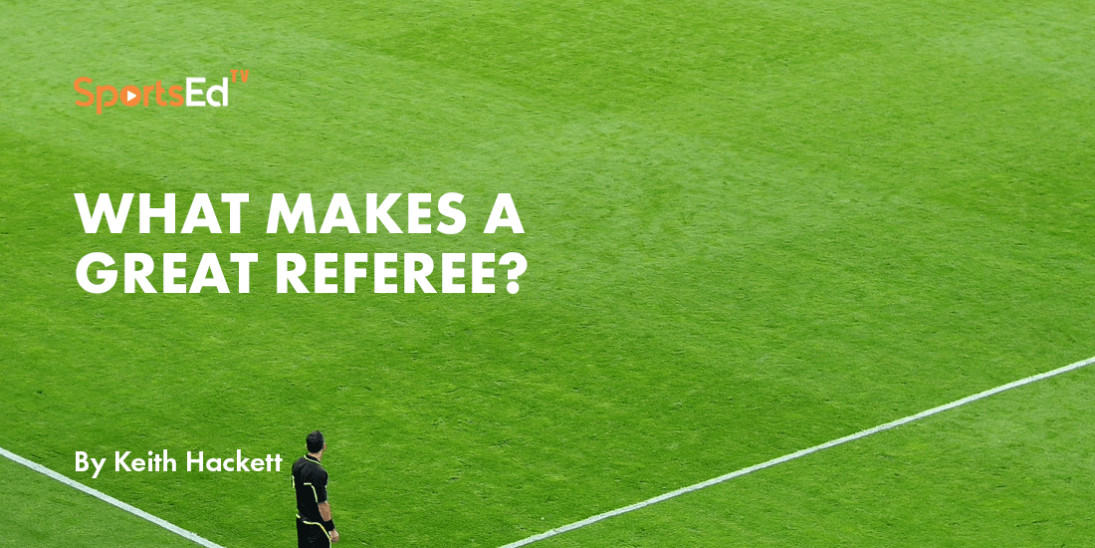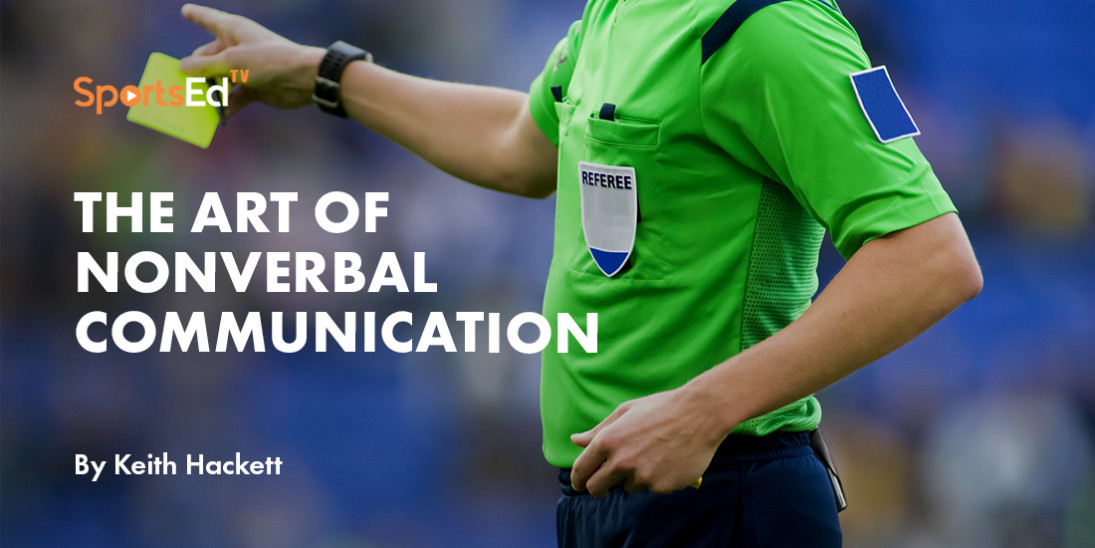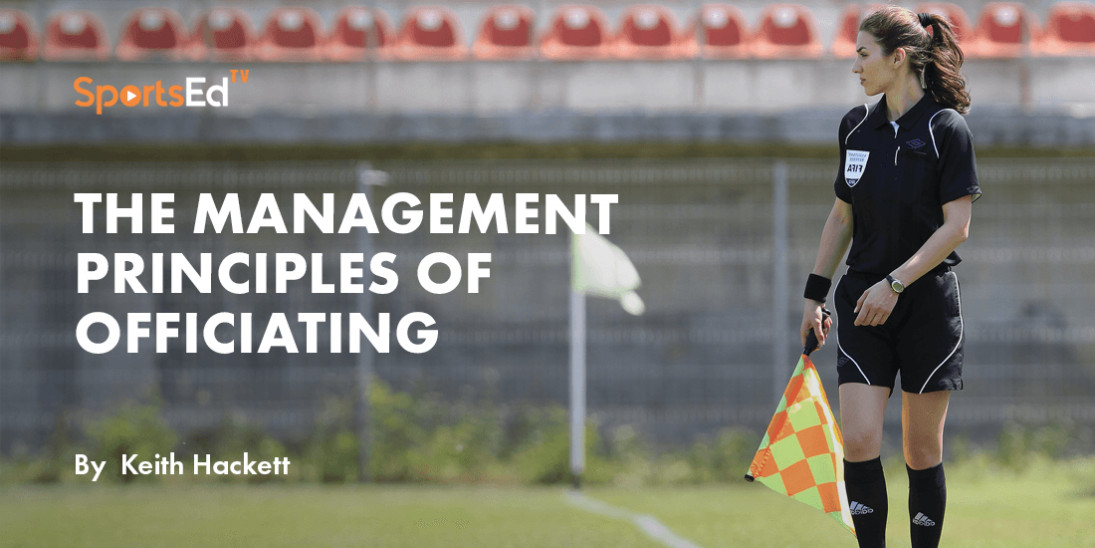Soccer
Welcome and thanks for visiting...

How To Set Effective Goals And Improve As A Soccer Referee
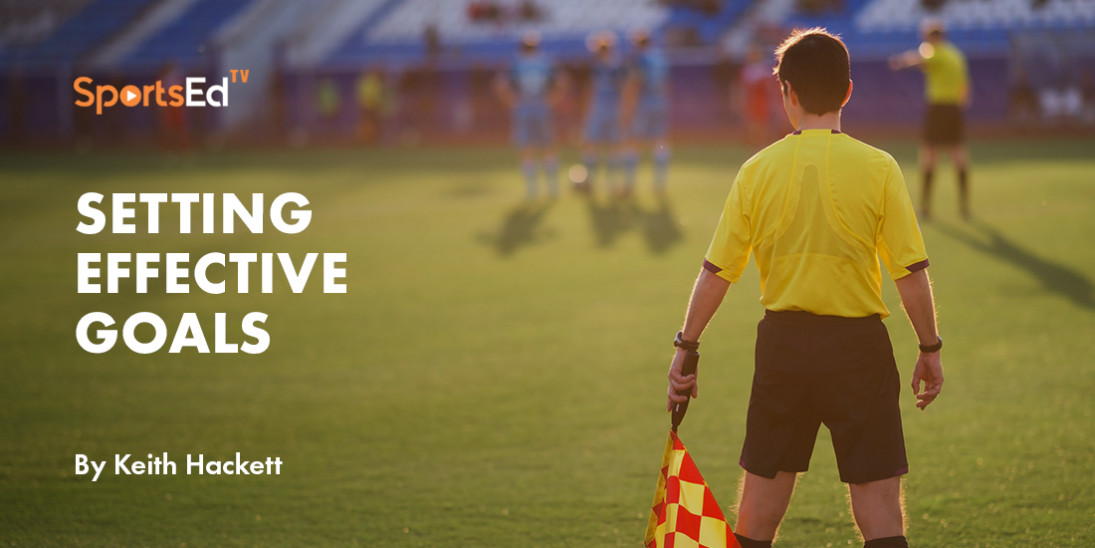
SportsEdTV Soccer is committed to bringing athletes, coaches, and parents pro-level Soccer education videos for FREE. All levels, anywhere, anytime. Check out our full instructional library and sign up to join our Soccer community.
Keith Hackett, counted among the top 100 referees of all time, discusses why and how to set effective goals that will pave the way to success and improvement.
Whatever sport we are involved in we must in my opinion have the ambition to be the best at what we do. It is my belief that setting yourself goals will help you to focus and build small steps in your pathway to the top.
Just like the nine-year-old playing in his junior team who dreams about becoming a Cristiano Ronaldo or Lionel Messi.
Most referees that I have worked with want to move up the ladder in the refereeing family, having joined when their playing days were over and they wanted to put something back into the game they love. I applaud them, and want them to also have the desire to deliver top class performances every time they go out on the field of play.
I spent twelve years at grassroots level officiating games in local parks with one man and his dog watching. I can recall a player shouting to me, “Come on Ref it's not the Cup Final!” I would respond by stating “Oh! Yes, it is”. Every time I went out to officiate, I wanted to do better.
Whilst you can prepare, there are no two games alike so every game provides you with another experience to add to the memory and learn from.
When I am coaching referees, I ask them the following question and instruct them to write down their answers
- What do you expect?
- What should you expect in reality?
- What can you achieve?
- How do you achieve it?
It is easy for an ambitious referee to become frustrated by setting themselves targets that in reality are just not achievable. For example, our current top referee in the English Premier League is Michael Oliver, regarded as a referee who reached the top echelons of our game early in his career. The reality is that he spent eight years officiating at the grassroots level, learning his craft and gaining the appropriate experience of managing players much older than himself, and of course where and when to run to ensure good position that achieves the best viewing angles.
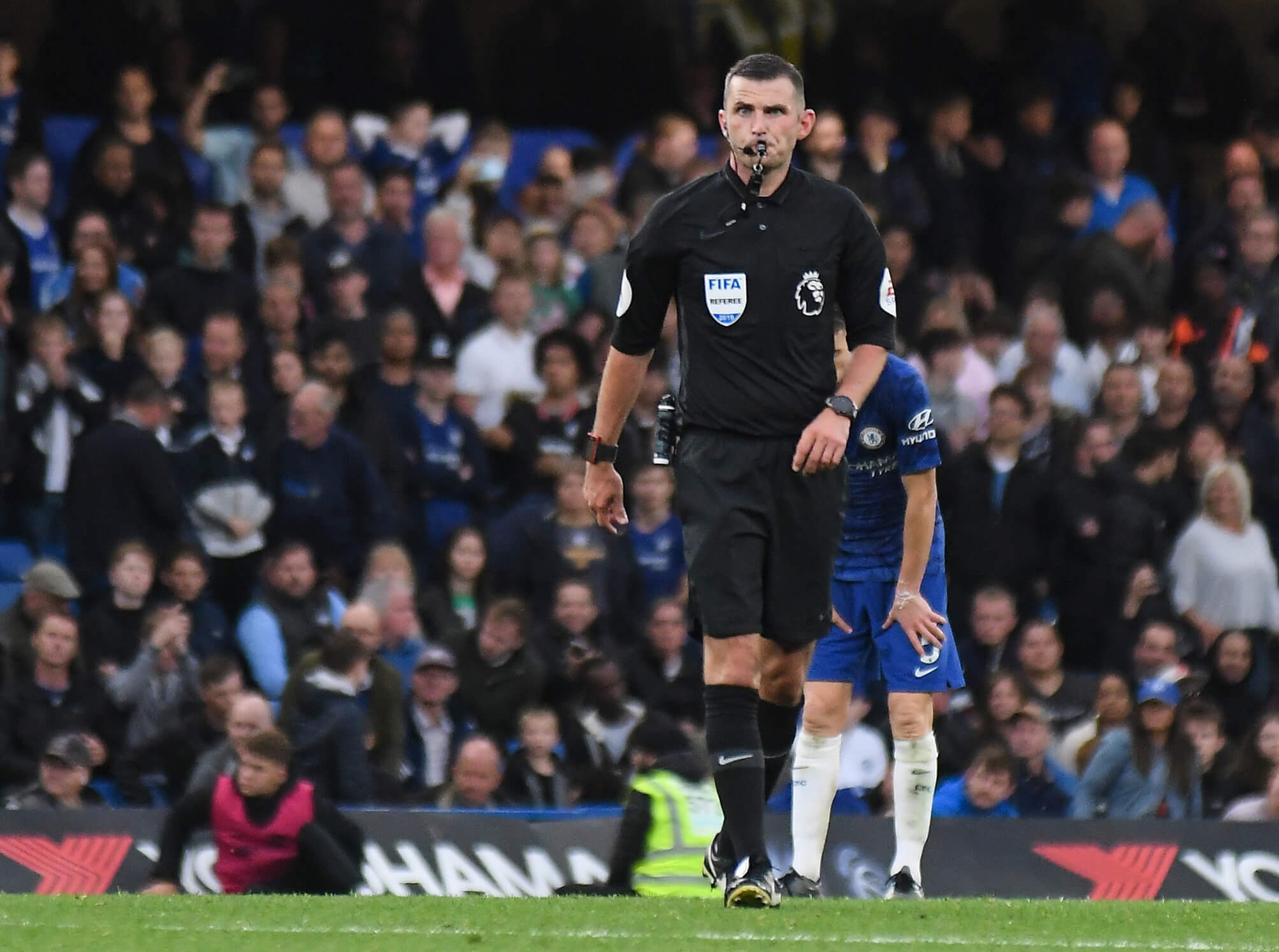
Michael Oliver spent 8 years officiating at the grassroots level, learning and perfecting his craft
So, I want the referee to write down his goals for the following time frames:
- Next 3 months
- Next Season
- Next 3-5 years
I tend to advise in the first three months to start to measure the distances, speeds and nutrition (create a diary that records what food they eat before a game and when). Smart watches can provide a great deal of information on speeds and distances that they cover in a game. This is beginning to move their performances from perception into reality.
If referees can get a friend to film the match, then they can interrogate the quality of their decision-making accuracy, how they managed the game and how well they communicated. It is important that the basics of refereeing are on a pathway of improvement.
CASE STUDY
I coached referee Howard Webb from Grassroots football through to his World Cup Final game in 2010.
When I took over the management of the Professional Game Match Officials Limited, the organisation for selecting, educating and appointing referees to professional games in England, I sat down with Howard to set his objectives which included his dream of becoming a Premier League referee.
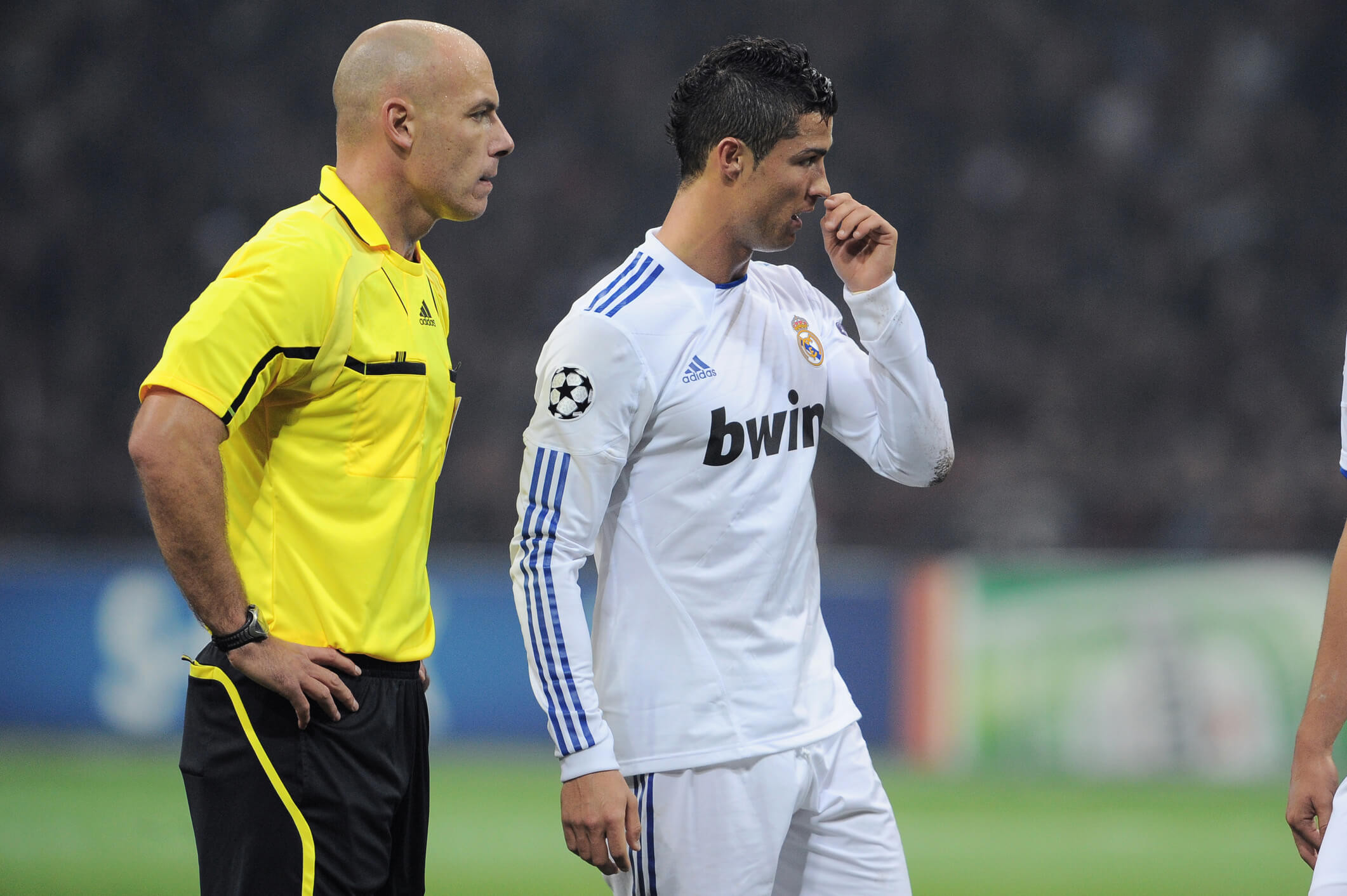 Howard Webb would go on to become one of the top referees in the game. Seen here with Cristiano Ronaldo
Howard Webb would go on to become one of the top referees in the game. Seen here with Cristiano Ronaldo
He was a national list official at the time, and performing well. We devised a plan by using goal setting targets that were ambitious but achievable over a two-year time frame.
Our Sports Scientist at the PGMOL agreed that we needed to affect a lifestyle change to meet the demands of the modern game.
I benchmarked players in the Premier league determining distances covered, number of sprints and the amount of distance covered at speeds of seven meters per second.
It was important to change some of the running styles of certain match officials having gathered the movement profiles of the players in a game.
We changed from training that delivered endurance fitness to one where dynamic sprints were easily achieved throughout the duration of the game to maintain contact with play and to achieve credible proximity to play with good viewing angles that enhanced the accuracy of decision making.
Howard achieved his ambition and went on to officiate the World Cup final, and is now passing on his skill sets with his involvement with PRO, the organisation that provides match officials for Major League Soccer in America.
The following criteria for GOAL SETTING is often used in business and I implemented it with all the referees under my management.
S.M.A.R.T. OBJECTIVES
- Specific -To the individual
- Measurable -Delegates reports + merit list, with the degree of success being easy to measure
- Achievable -Motivation agreed & you have ownership
- Related -To career progression
- Time -Related short, medium & long term.
SETTING GOALS WITH THE INDIVIDUAL MUST BE;
- Short term (Next three months)
- Medium term (Next season)
- Long term (Three to five years)
- They need to adjust once accomplished and new goals introduced
- Goals must be realistic
Here are some Goal Setting examples.
- I want to improve my levels of fitness (by how much, by what measurement, and by when)
- I will set a new weight target with the aim of losing a few pounds by a certain date
- I want to reach the next level by a certain date
- I want to referee a top cup game or final of a local tournament by a certain date
Each must be set as a SMART objective, and oftentimes they can then be broken down into smaller SMART objectives that draw out the pathway to achievement.
Looking back at my notes, this is a snapshot of my discussions with Howard Webb who of course became one of the World’s top officials.
He was a National List Referee but wanted to become a FIFA international Referee. He was already a very fit referee –so we worked on movement and specific decision making objectives.
- Explosive sprinting
- Less application of advantage (He often took too many risks)
- Major decision accuracy
- Teamwork
He of course achieved his goals through hard work, focus and dedication.
Follow SportsEdTV Soccer on Facebook and Instagram to stay up-to-date with the latest content

